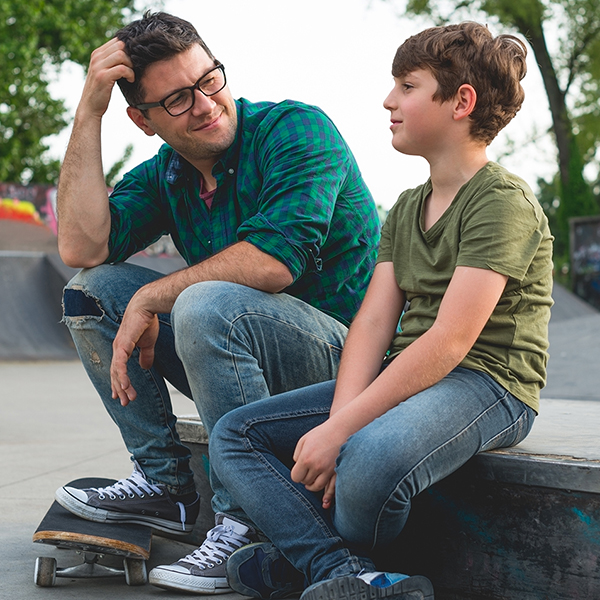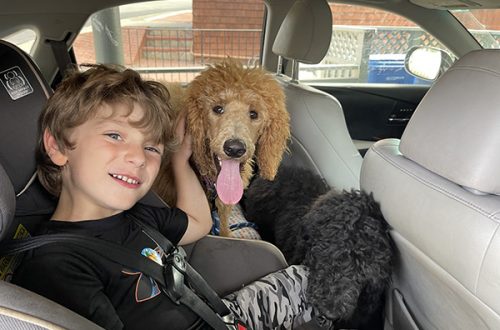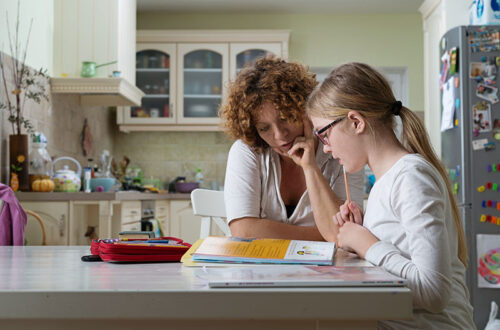Kids Need Opportunities, Skills & Recognition
BY NICOLE M. YOUNG, MSW
 G’day from Australia, the “birthplace” of the Triple P – Positive Parenting Program! I’m here for the Helping Families Change Conference for Triple P researchers and practitioners, where I had the opportunity to present about our local and statewide efforts to obtain governmental recognition of Positive Parenting Awareness Month in January. It was thrilling to share our story with an international audience and hear how they were inspired by our creative, collective efforts to elevate the importance of positive parenting in Santa Cruz County and across California.
G’day from Australia, the “birthplace” of the Triple P – Positive Parenting Program! I’m here for the Helping Families Change Conference for Triple P researchers and practitioners, where I had the opportunity to present about our local and statewide efforts to obtain governmental recognition of Positive Parenting Awareness Month in January. It was thrilling to share our story with an international audience and hear how they were inspired by our creative, collective efforts to elevate the importance of positive parenting in Santa Cruz County and across California.
In turn, I’ve been inspired by several messages that have been emphasized throughout the conference by Professor Matt Sanders (creator of Triple P), researchers, and parent educators from around the world:
- The first 1,000 days (3 years) of life are a critical period in a child’s development…and every subsequent 1,000 days are also important.
- The quality of parenting and family relationships are crucial in every stage of a person’s life—even through adulthood.
- Positive parenting helps achieve multiple goals—including good physical, mental, behavioral, and financial health—and the benefits of positive parenting are passed on to each generation.
- Children and youth are more likely to adopt healthy social and emotional behaviors when they have strong relationships with parents and other caring adults who communicate healthy beliefs and clear expectations.
To create those strong relationships, children and youth need:
- Opportunities to actively participate in and feel a sense of belonging in their families, schools, and communities.
- Skills that will help them navigate school, relationships, work, and life.
- Recognition and praise for their efforts, improvements, and accomplishments.
- We can all find moments to provide children and youth with opportunities, skills, and recognition, whether we’re a parent, teacher, neighbor, elected official, or just a caring community member.
So this month, instead of answering a specific question, I’m offering a few positive parenting tips that anyone can use to provide opportunities, skills, and recognition for children and youth.
Talk with children and teens about things they’re interested in. This shows you value their thoughts, opinions, and feelings—even when they’re different from yours—which is essential to building a strong relationship based on trust. Having everyday casual conversations also helps children and youth develop important language skills, including the ability to listen, ask questions, learn new words, and express themselves.
Provide engaging activities that help children connect with other people, animals, and the environment. This could be anything from going to the park to enrolling children in preschool or recreational activities, to volunteering at an animal shelter, or participating in an environmental clean-up day. Safe, interesting activities keep children occupied (which can prevent challenging behaviors), and provide opportunities for children to practice communicating their thoughts and needs, cooperating with others, and showing compassion for other people and living things.
Create teachable moments. Encourage children and youth to be curious and ask questions, then use incidental teaching to involve them in the learning process. Ask if they have an opinion or think they can answer their own questions. Encourage them to share their thoughts, even if they don’t know the exact answer. This sends the message that we all learn by trial and error, and that it’s often more important to be curious, thoughtful, and open-minded than to be right.
Give meaningful, descriptive praise. It’s true that praise can become ineffective when it’s overused, too general, or given half-heartedly. But in Triple P, descriptive praise is a way for parents to acknowledge and encourage children’s efforts, improvements, and accomplishments. When it’s specific and genuine, descriptive praise helps builds children’s skills and confidence as they learn how to be active, engaged, cooperative members of their families, peer groups, schools, and communities.
Final Thoughts: Raising children to become confident, capable, independent adults is one of the most important and rewarding, but often most undervalued, jobs in our society. And yet, as Matt Sanders says, “The future wellbeing of our communities depends on how well we raise our children.” While that might sound like a daunting responsibility, just remember there’s no such thing as a perfect parent, and no one should have to do this job alone. Just like children, all dads, moms, stepparents, grandparents, foster parents, and other caregivers need opportunities, skills, and recognition to develop their parenting “muscle.”
This monthly article provides tips for families raising children, based on the world-renowned Triple P – Positive Parenting Program, available to families in Santa Cruz County. If you have a question or idea for a future column, please email me at triplep@first5scc.org.







